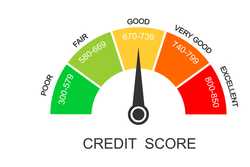How to Start an Online Business in 8 Steps

Our evaluations and opinions are not influenced by our advertising relationships, but we may earn a commission from our partners’ links. This content is created by TIME Stamped, under TIME’s direction and produced in accordance with TIME’s editorial guidelines and overseen by TIME’s editorial staff. Learn more about it.
The internet has reshaped where, when, and how people shop for goods and services. The popularity of digital shopping has opened a world of opportunities for online business owners. With a computer and a stable internet connection, you can work from anywhere, set your own schedule, and sell to customers worldwide while avoiding the hassle and costs of owning a brick-and-mortar business.
Whether you're just starting to brainstorm about the best online business ideas or already have a concept in mind, here are some tips for getting your business up and running.
Basic: $0 + state filing fees
Pro: $249 + state filing fees
Premium: $299+ state filing fees
Basic:
Pro:
Premium:
If you haven't done so already, you'll need to decide what you want to offer and who your target customers will be. Here are a few factors to consider:
Mark Twain once said, "Find a job you enjoy doing, and you will never have to work a day in your life." While only some would agree with this work/life approach, it's a good starting point for choosing a business niche. Think about your passions, skills, and expertise, then focus on ideas where they intersect.
Consider your target audience and whether they have a problem no one else is solving or a product no one else is providing. If so, do they have the discretionary income to afford your product or service and are they willing to pay for it? Will there be adequate demand?
Consider if your niche has profit potential in an online environment. For example, an overly large or heavy product may be too expensive to ship at a reasonable cost. Is the idea scalable so you can accommodate more customers and transactions in the future?
A business model is how your company will provide products or services to customers and make money. Some options to consider include:
A good business plan outlines the steps to start and manage your business. The important thing is to think through the key elements of your venture while focusing on your goals. According to the Small Business Administration (SBA), a traditional business plan format includes some combination of the following:
Explain what your company is and why it will be successful. This section should include your mission statement, product or service, basic company information, and financial details if you need financing.
Provide detailed information about your company: the problem it solves, your target audience, and your competitive advantages.
Explain your industry outlook, what other businesses are doing, and how you can do it better.
Outline who will run your company and how it will be structured. Will it be a general or limited partnership, a C or S corporation, limited liability company (LLC), or are you a sole proprietor?
Describe the product or service you offer, explaining how it benefits your target customers.
Explain how you will attract and retain customers and the steps for making a sale.
Explain the level of funding you'll need over the next five years and how you'll use it. Include financial projections detailing your forecasted income, cash flow, and budgets. Research how to get a business loan, and familiarize yourself with the SBA website to learn more about its loan programs.
Once you know what you'll sell and how you'll run the business, developing your brand is next. You'll have to choose a business name and create a logo. This process can be relatively simple if you already have ideas in mind—or challenging if you're starting from scratch. You might want to hire a graphic designer to implement your vision.
Once you have developed your brand, it’s time to build a website. You’ll need to lock in a domain name and choose a hosting service. There are website builders, such as Squarespace, available to help you get started—or you can hire someone to do the work for you.
The next step is to make your business official. While the requirements vary by business, here are the essential action items:
Registering with your state gives you legal grounds to use your brand's name. You can utilize a service like LegalZoom to register as a sole proprietor, LLC, corporation (C corp or S corp), nonprofit, or DBA (doing business as). Consult a tax specialist for help choosing the best business structure for your situation.
You'll need an Employer Identification Number (EIN)—a federal tax ID—to pay federal taxes, apply for business licenses and permits, open a business bank account, and hire employees. You can apply for an EIN for free on the IRS website. The IRS says to beware of websites that charge for this free service.
Depending on your business activities and location, you may need licenses and permits from your state, county, or city. Check with your state's website (e.g., ca.gov, nc.gov) to determine your necessary licenses and permits.
Most businesses must file an annual income tax return, and the form you use depends on how your business is structured. Online services like Found, a banking and tax app designed for small business owners, have tools to make keeping track of taxes easier. It's also helpful to establish a relationship with a trusted tax specialist.
Once your online business is ready for the world, it's time to market it. While marketing strategies vary depending on your business model and target audience, here are a few options to consider:
Keeping existing customers happy is often easier than generating new leads, so it can be worth the extra effort to reward them for their loyalty. Consider offering discounts to repeat customers or perks to patrons who refer friends and family. You might also provide spending-based rewards or incentives for sharing positive reviews on social media.
Of course, one of the best ways to reward loyalty is to connect with your customers personally, making sure they always feel welcome and appreciated. That way, they'll be more likely to become repeat customers, recommend you to friends and family, and help you grow a thriving online business.
Consumers increasingly prefer shopping online, providing virtually unlimited opportunities for digital entrepreneurs to reach a global audience. Further, many of the traditionally time-consuming aspects of starting a business have been simplified—and made more affordable—by websites such as LegalZoom.
One outcome of the pandemic was the emergence of new and enhanced tools that make remote work not only possible, but more efficient. As a result, it's easier than ever to work anywhere in the world with a laptop and a reliable internet connection.
Businesses have a slew of start-up costs that can be difficult to manage before you're up and running. Here are a few ways to make balancing the budget a little easier.
A business credit card is an excellent way to keep your business and personal expenses separate for accounting purposes, but that's not the only perk. With the best small business credit cards, you can also earn rewards on your spending, enjoy perks like free travel insurance, and score a hefty welcome bonus.
A good way to save money in the early days of your business is to use upgradable tax prep and other business-related software. Start with the free version, then upgrade to the premium package once your business takes off.
You'll need a payment service provider to accept online payments. Not surprisingly, some payment solutions are more expensive than others. For example, Square charges 2.9% + $0.30 for online transactions, while Venmo costs 1.9% + $0.10 between Venmo accounts. Of course, fees shouldn't be the only consideration when choosing a payment service provider. Still, they're worth paying attention to; even small differences can add up over time.
Starting an online business involves many of the same steps as opening a brick-and-mortar business. You’ll need to determine your niche, conduct market research, craft a well-thought-out business plan, and develop a brand and website. Implementing a successful marketing plan is also key to building and retaining a solid customer base.
The best online business for you depends on your professional background, skills, interests, and goals. Think about what you're good at and enjoy doing, then brainstorm ideas for monetizing it.
There are a wide variety of online businesses ranging from e-commerce to private tutoring. How profitable one is over the other depends on a number of factors. The start-up and ongoing costs of some are nominal compared to others. For example, an online tutoring business would typically have much lower costs than selling collectibles online. Demand, competition, and how well an online business is managed also impact profitability.
You can start an online business on a shoestring budget. With $100, you’ll be able to buy a domain name, build a basic website (using a free template), and publish the site through a web hosting provider long enough to get you started. Of course, some ventures have higher start-up costs, so you may well need considerably more than $100, depending on your business.
The information presented here is created by TIME Stamped and overseen by TIME editorial staff. To learn more, see our About Us page.



